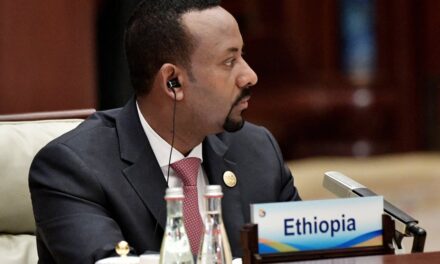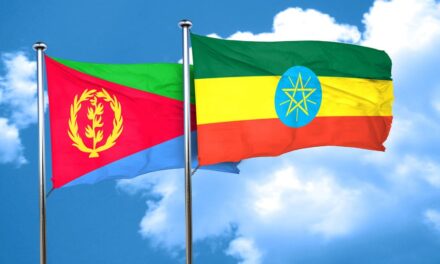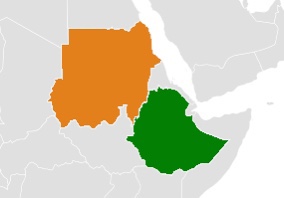By: Dejen Yemane Messele. (Lecturer of Law, Wollo University & PhD Student, Addis Ababa University, College of Law and Governance Studies)
“Upon GERD’s completion and once it starts generating power, regional politics will essentially be shifted in many aspects.”
Launching the GERD equals cutting the Gordian knot of the Nile Politics
GERD is the national pride and flagship project of the people of Ethiopian; and the country is longing for the completion of its long-awaited beacon of hope to drive it out of darkness. Geo-politically, and somewhat unsurprisingly, Ethiopia’s decision to construct the GERD with a reservoir capacity of 74BCM appeared a challenge to the age-old and Egypt led hydro-hegemonic status-quo on the Nile River waters. Based on the unfair and illegal colonial-era water appropriations ‘treaties’ made between the two downstream riparian states (the Sudan, Egypt) and the colonial power in charge of the two, Egypt even claims historic and natural rights over the Nile waters. As a result, it is not a surprise if Egypt reacts aggressively to Ethiopia’s counter-hegemony move since the commencement of the GERD project.
Ethiopia keeps constructing its dam despite Egypt’s discomfort and its construction has now reached a point of no return. Upon GERD’s completion and once it starts generating power, regional politics will essentially be shifted in many aspects.
Irreconcilable Claims
Ethiopia did not act as an exclusive dam owner. It has rather opened the gateway of opportunities to build trust, and to open discussions on legal and technical ramifications. Accordingly, the downstream states made requests for the study of the socio-environmental impact of the dam on their jurisdiction through independent experts. Ethiopia has accepted the request and the international panel of experts (IPoE) had been established. Sadly, this was an unnecessary concession made from Ethiopia’s side. No international law would have forced Ethiopia to join the downstream concerns for which they are not a co-owner of the dam. Ethiopia invite them to the portmanteau of the GERD just as an expression of good will gesture.
From DoP to the US-sponsored Negotiations: Lessons
Egypt has been considering all possibilities to maintain its monopolistic water shares over the Nile River. Egypt’s interest in marinating the ‘natural and historic rights’ has never been concealed. The very reason to stay away from the Nile Basin Cooperative Framework Agreement (CFA) was due to this specific concern. Egypt is eager to sign an unprecedented agreement with Ethiopia which reaffirms the former’s colonial-era appropriated water share from the Nile River. It’s Egypt’s lifetime dream as a state.
Egypt’s participation in the GERD negotiations from 2015 to present clearly divulges its determination towards its motive. In the 2015 the three countries have signed a declaration of principles on the GERD which allows Egypt to have a say on the GERD. Article 5 and 10 of the DoP which provides filling and operation of the GERD and dispute settlement clause respectively gives good leverage to Egypt. But the signing of the DoP was not an end by itself, it rather served as get-go to another end. So, Egypt has gone half-way by then.
When Ethiopia announces its plan to start filling the reservoir by the coming rainy season in July 2020, Egypt had to think a strategy to entrap Ethiopia with a water allocation agreement on the guise of ‘filling and operation’ guideline preparation. To that end, Egypt uses a dual approach at a time, DoP and non-DoP approaches. Egyptian negotiators use the DoP to claim Ethiopia’s duty to reach an agreement on the filling and operation of the dam so that the later will not respond in the negative. The non-DoP approach is its attempt to invite the third party in a unilateral dealing which is not dictated in the DoP.
Ethiopia has accepted the US’s intervention. Still, Egypt was successful in making its strategy doable. Ethiopia keeps attending all rounds of talks where the observer upgrades to mediator and quasi-decision maker. Due to a number of reasons, Ethiopia has skipped the last round where the signing of a US-drafted agreement was anticipated. The 11th hour moment has saved Ethiopia from falling into Egypt’s entrapment. Egypt tried its second chance in the recently resumed negotiation and yet concluded in a stalemate.
Keep Walking is the way-forward
Despite the downsides, Ethiopia’s participation in the US-sponsored GERD talk was like a blessing in disguise. Ethiopia’s negotiating team had the opportunity to represent and defend a major national interest. They had able to identify outstanding issues relating to the GERD negotiations. They had able to discern ‘what exactly Egypt wants from the GERD talks. The team was able to tell and clarify the facts of the GERD to the international community where Egypt had to mislead them. The process attracted Ethiopian intellectuals to closely follow up on the issues and to contribute their views. It refreshes the public support to the GERD. It gives a caution to the government not to rush for an international negotiation without adequate vigilance.
Hereafter, the government of Ethiopia should focus on the expedition of the dam construction at home. No need to wait for a blessing from downstream countries to start filling. Egypt has appealed to the United Nations Security by withdrawing from the recently resumed negotiation which was observed by the US, EU, and South Africa. This shows that Egypt is a false negotiator who only negotiates to take all and give nothing to its counterparts.
But it is mostly known that the United Nations would not appreciate an unfair claim and could not even set the complaint as an agenda before the Security Council. Ethiopia has traveled extra-miles to listen the concerns of the downstream countries and attests its good neighborliness. Ethiopia’s accommodation of Egyptian and Sudanese interests is more than enough, and Ethiopia should proceed filling its dam regardless of the false accusations from Egypt. No need to be fooled by Egypt more than once, unless we opt to live up to the maxim ‘fool me once shame on you; fool me twice shame on me.’
But the Nile basin countries, including Sudan, should think to institute a case before the ICJ and the Security Council against Egypt for its over-exploitation and the irreversible damage it has caused to the Nile ecosystem. Egypt could and should be held accountable for breach patchwork of international law obligations by causing the environmental damage to the Nile River. Basin countries may request compensation from Egypt for the damage it has caused on the populations dependent on the Nile River as it was an exclusive beneficiary of the River for epochs. Egypt should also pay environmental rehabilitation costs. Both the Nile and the riparian states deserve justice.





